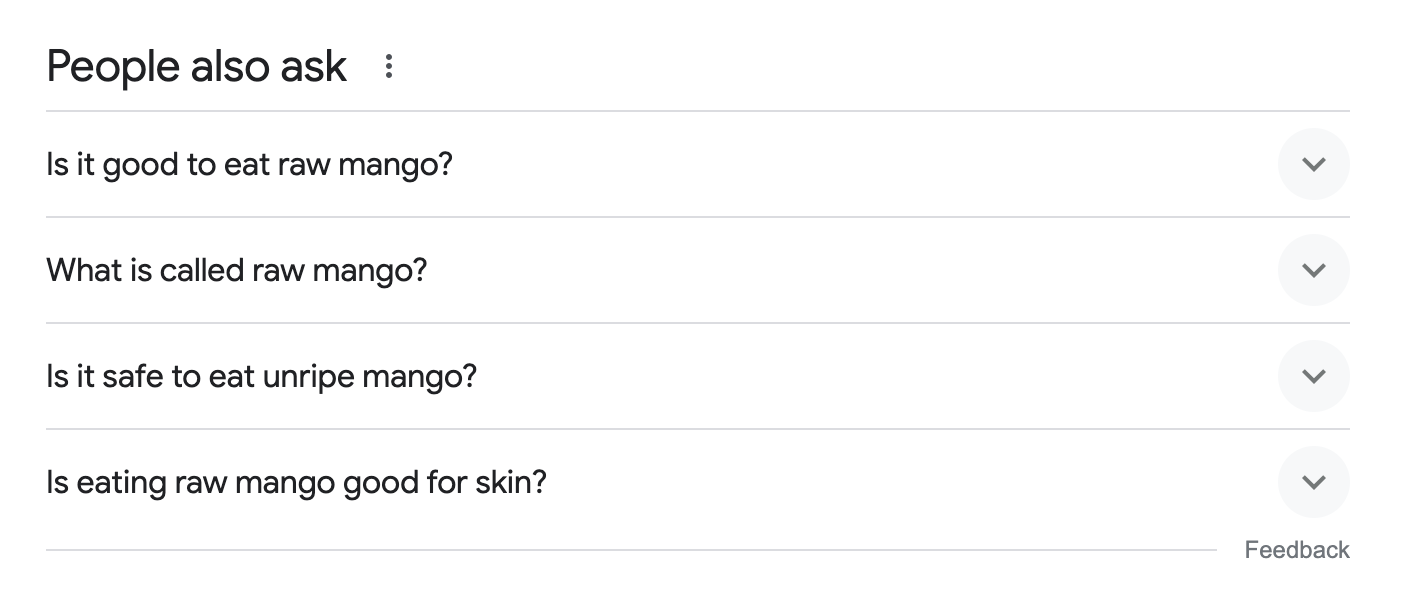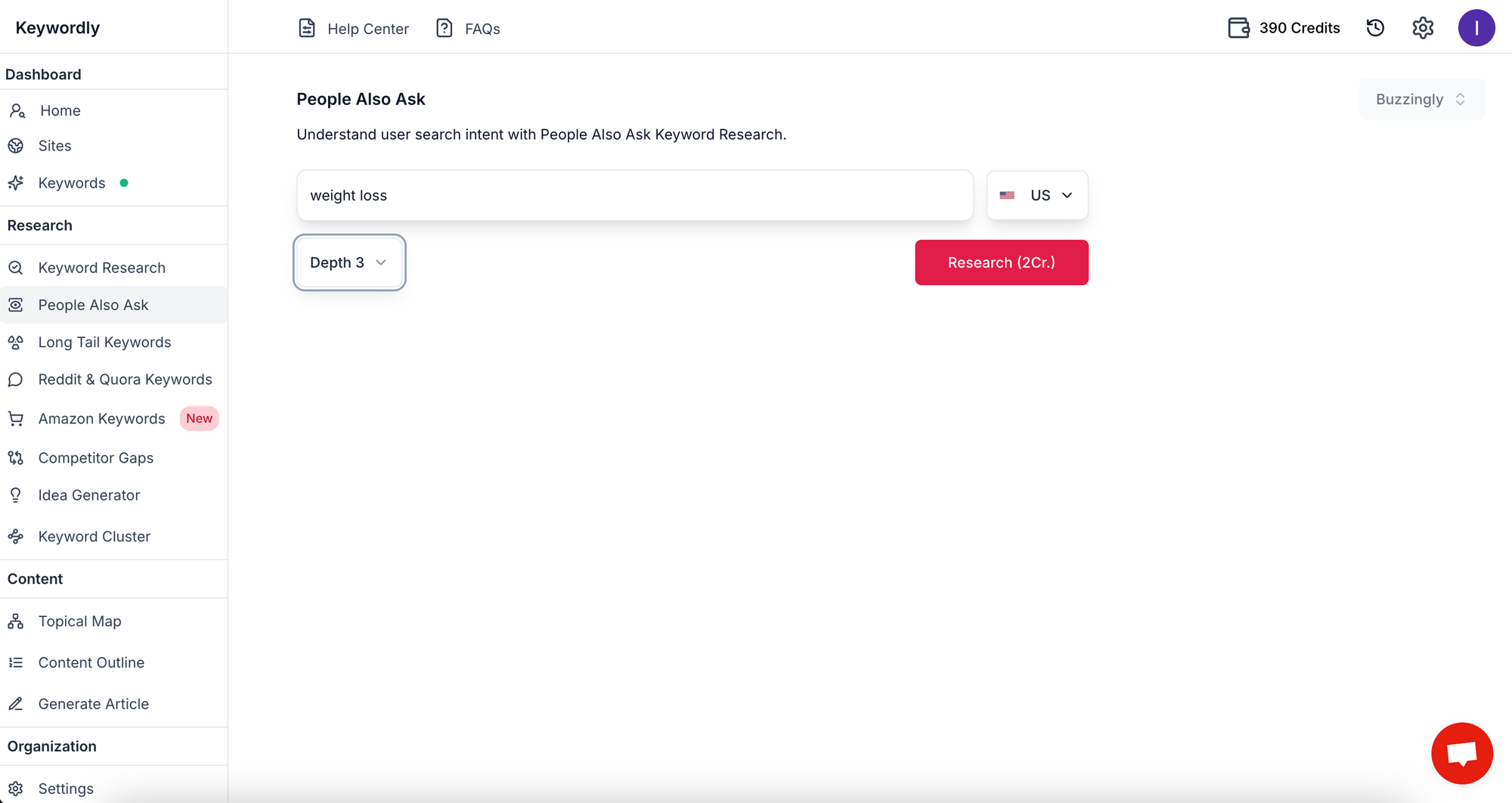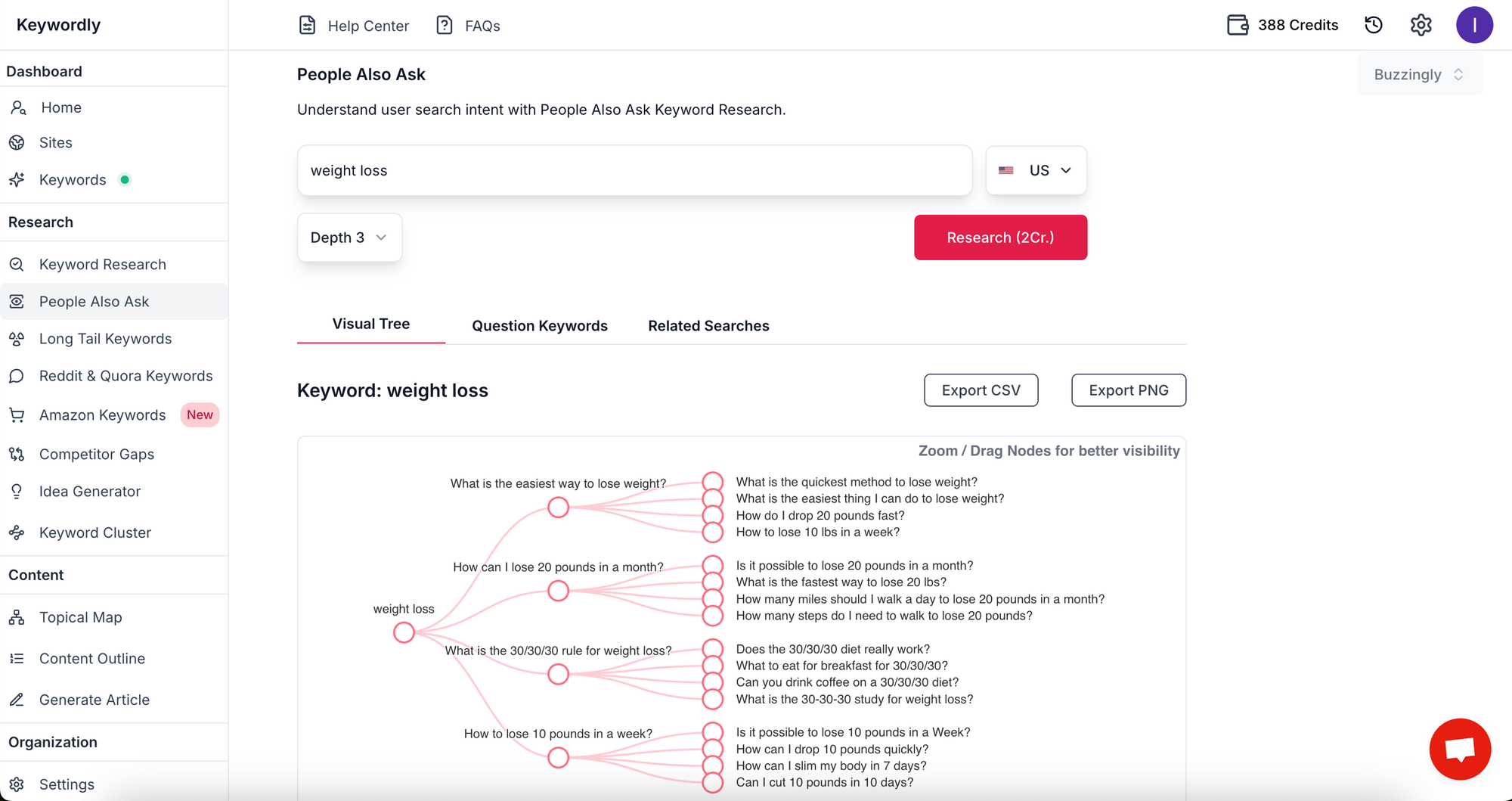What is People Also Ask in Google?
People Also Ask (PAA) is a Google search feature that displays additional questions related to the user's original search query, along with quick answers to those questions.

People Also Ask (PAA) is a Google search feature that displays additional questions related to the user's original search query, along with quick answers to those questions.
The PAA feature on Google provides a goldmine of related questions that users frequently search for. By analyzing PAA boxes, content creators can gain insights into the nuances of user intent and the range of questions surrounding a primary keyword.
Here are the key points about People Also Ask
It appears as an expandable box near the top of Google search results, providing users with supplementary questions and answers beyond the initial query. For example, if you search for raw mangoes on Google, you get the following featured snippet of Google.

PAA helps users discover more information and explore related topics around their original search. It enhances the search experience by providing additional context and insights.
PAA Questions and Answers
The questions in the PAA box are dynamically generated by Google's algorithms based on the user's search intent and related search trends. Unlike Google's featured snippets, which show a single result, the PAA box contains multiple questions and answers that expand dynamically when the user clicks on them.
PAA questions reveal what users are genuinely interested in, allowing creators to craft comprehensive, targeted content that addresses multiple facets of a topic. Incorporating these insights not only boosts content relevance but also increases the chances of capturing featured snippets, enhancing visibility.
PAA answers are typically concise, factual snippets, similar to featured snippets. Providing clear, direct answers to common questions related to your topic can help your content get featured in the PAA box.
How Does PAA Help Websites?
PAA can be beneficial for website owners and content creators in a few key ways:
1. Covering Relevant Information
The PAA questions reveal what related information users are seeking, allowing you to create content that comprehensively answers those queries.
2. Generating New Content Ideas
Analyzing the PAA questions can inspire new content ideas around the topic that you may not have initially considered. For website owners, appearing in the PAA box can increase visibility and drive more organic traffic, as the answers are pulled directly from web pages. Optimizing content for PAA is an important SEO strategy.
3. Optimizing for PAA Visibility
Structuring your content to directly answer common PAA questions can increase the chances of your page appearing in the PAA box. By leveraging the insights from PAA, you can improve the relevance, comprehensiveness, and discoverability of your content.
How does Keywordly help?
Keywordly helps SEO, Marketers and Agencies get instant insights into what people are searching for and what questions they ask online so that they can answer and build trust, authority and your audience. Keywordly helps you
1. Research any topic or question
Keywordly's People Also Ask function crawls the Google for your search term in real-time. It then mines the questions from the People Also Ask and Related Searches featured snippet of Google.

2. Understand User Intents and Build Keyword Relationships
By live clicking the questions, Keywordly maps the questions, creates a cluster and builds you a nice tree using these so that you can visualise intent and build relationships between questions.

3. Generate Keyword Lists
You can then save PAA questions and answers to a keyword list so that you can generate content ideas and write articles on them.
Summary
PAA questions play an important role in understanding user search intent and defining content strategy.
Keywordly helps Business Owners, Content creators and SEO agencies understand user intent by analyzing queries people ask on search engines.
By answering questions people ask in their content, SEOs can build trust and drive organic traffic.



